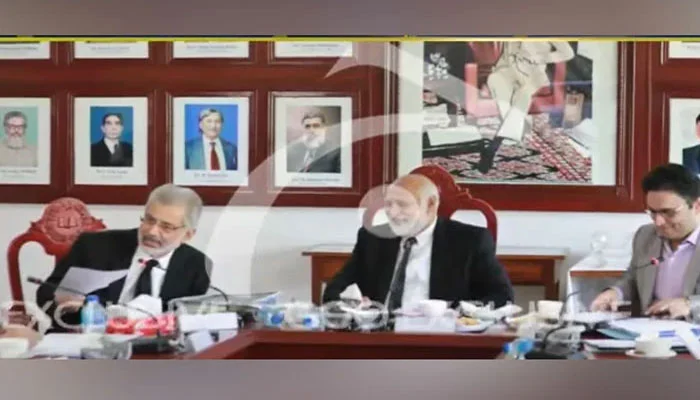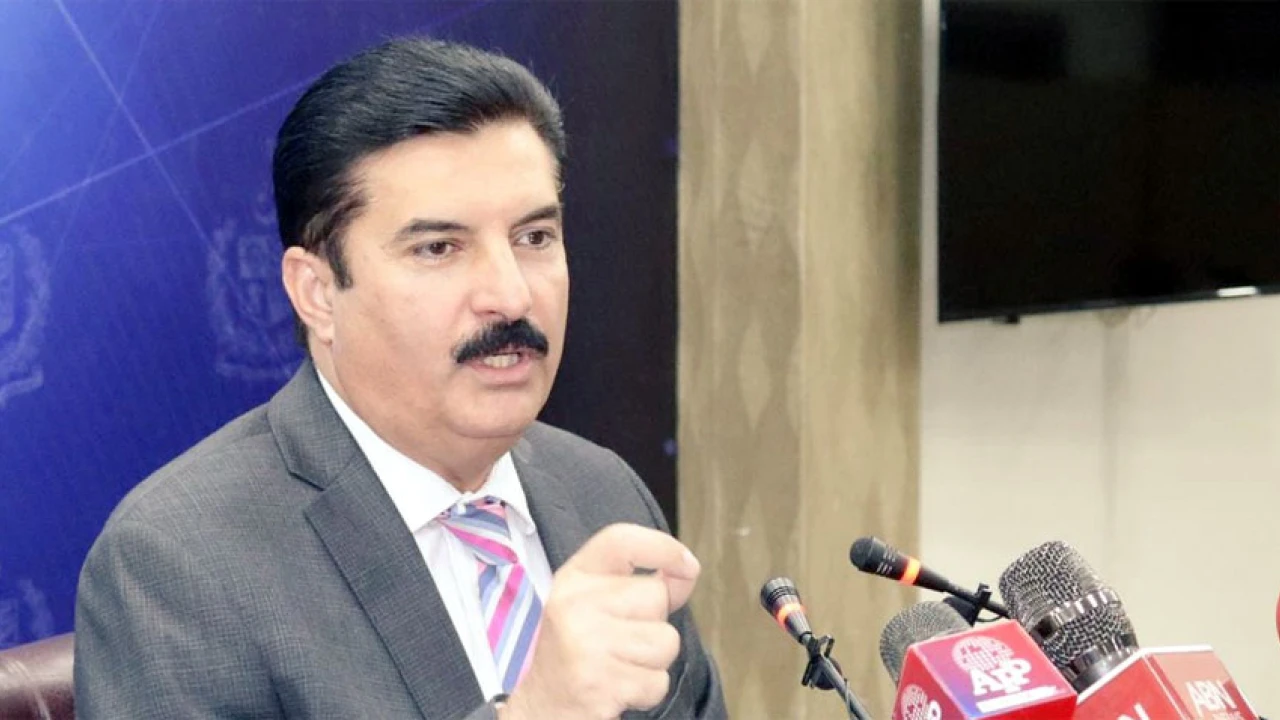Justice Qazi Faez Isa, the Chief Justice of Pakistan, made a notable appearance as a member at the University Syndicate Meeting of Quaid-e-Azam University. During this meeting, the University Syndicate announced the reinstatement of student unions within the university, signaling a significant development in Pakistan’s higher education landscape.
The University Syndicate meeting, presided over by Vice-Chancellor Professor Niaz, saw Chief Justice Qazi Faez Isa actively participating. One of the key outcomes of this meeting was the formation of a committee led by Education Secretary Wasim Ajmal, tasked with establishing the rules and regulations for the reconstituted student unions.
However, Chief Justice Qazi Faez Isa took the opportunity to express his concerns regarding the presence of armed police, Rangers, and security forces within the university premises. He voiced his dissatisfaction, emphasizing that student unions should operate in a non-partisan, non-violent, and inclusive manner.
Justice Isa highlighted that student unions should be non-sectarian and promote unity among students while refraining from any divisive ideologies or activities. He stressed the importance of keeping the university free from arms and narcotics, urging a commitment to uphold academic and ethical standards.
Furthermore, Chief Justice Qazi Faez Isa reminded attendees that Quaid-e-Azam University had a history of student unions, which was discontinued during General Zia-ul-Haq’s martial law regime. He underlined that no external interference should be allowed in university affairs, and agencies should refrain from meddling in university matters. His remarks emphasized the need to prioritize higher education and ensure a conducive environment for academic pursuits.
Justice Isa’s participation in the University Syndicate meeting echoes the ongoing debate in Pakistan about the revival of student unions. This development is seen as a step towards fostering student engagement, democratic values, and a platform for young voices in educational institutions. It also underlines the significance of higher education institutions as centers for intellectual growth and free expression, where students can actively participate in shaping their academic experiences and societal roles.



